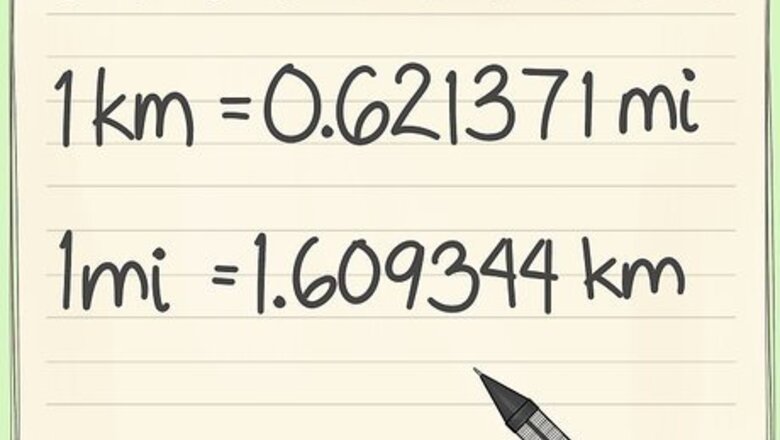
views
Converting Kilometers to Miles
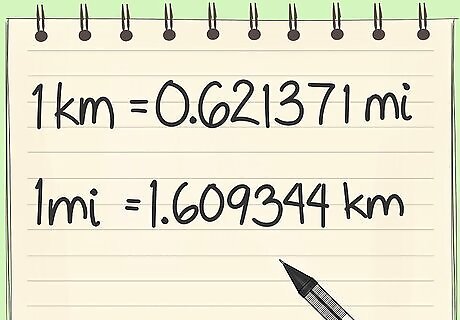
Master the formula for converting kilometers to miles. 1 kilometer is equal to 0.621371 miles (often shortened to .62).1 mile is equal to 1.609344 kilometers. Thus, to convert kilometers to miles, simply multiply the number of kilometers by 0.62137. For example, let's say you start with 5 kilometers. People are often interested in this conversion because they want to know how many miles are in a 5K run. The formula is 5 X 0.62137= 3.1 miles. You could also divide the number of kilometers by the number of kilometers per mile, which is the above-mentioned 1.609 kilometers (rounded off for simplicity). For example, 5 kilometers divided by 1.609 kilometers per mile = 3.1 miles.
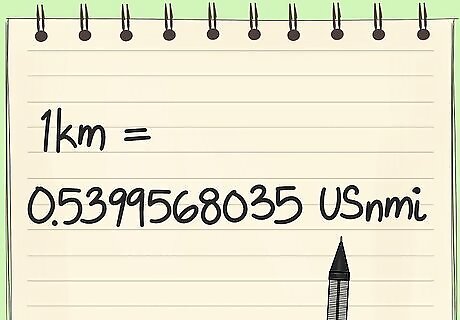
Convert kilometers to nautical miles. Regular miles are a land-based unit of measurement. However, perhaps you want to know the conversion for nautical miles instead. The conversion for nautical miles is different: Every kilometer is = to 0.5399568035 nautical miles. Nautical miles are based on the earth's circumference and is used for air and sea travel.
Using Estimation to Convert Kilometers to Miles
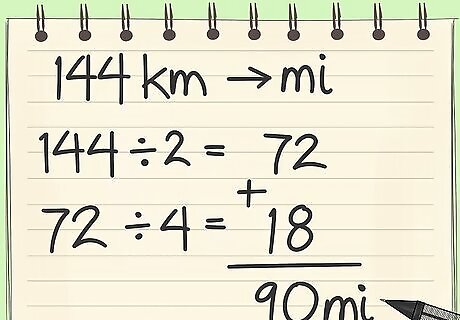
Use an old trick to do the calculation. It’s too hard for most people to multiply any number by 0.62137119. There is a way you can do the calculation in your head. Let’s say the number of kilometers is 144. Halve it. That gets you 72. Then take a quarter of the half. That’s 18. Now, add the two together, the half and the quarter: 72 plus 18 in this case. You get 90. That’s the answer.
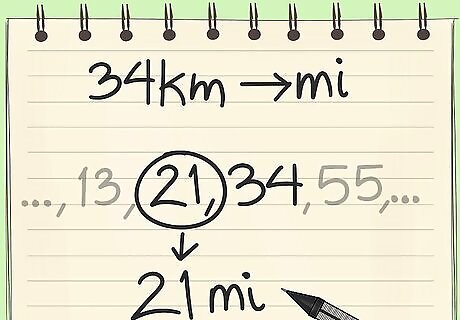
Use Fibonacci numbers to do the conversion. This one's unusual, but it works. These numbers are a series of numbers in which each subsequent number is the sum of the two before. Start with two consecutive Fibonacci numbers. For example, the numbers 5 and 8. There are 8 kilometers in 5 miles. To convert back, read the result in the other direction, as there are 5 miles in 8 km. This works as an estimate only. For example, take the consecutive Fibonacci numbers 21 and 34. This would tell you there are 34 kilometers in 21 miles and vice versa, when the exact answer is 33.79 kilometers. In order to convert a number that isn't a Fibonacci number, express the original number as a sum of Fibonacci numbers and do the conversion for each Fibonacci number separately. Say you want to convert 100 miles to kilometers. Number 100 could be a sum of Fibonacci numbers 89 + 8 + 3. The Fibonacci number following 89 is 144, the Fibonacci number following 8 is 13 and Fibonacci number following 3 is 5. So add 144 + 13 + 5 = 162 kilometers in 100 miles.
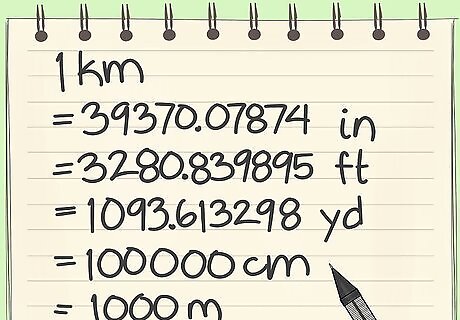
Find other conversions for kilometers. Perhaps you don't want to stop with miles. There are many other conversions for kilometers. Every kilometer is equal to 39,370.07874 inches, 3,280.839895 feet,1,093.613298 yards, and 100,000 centimeters. Every kilometer is equal to 1,000 meters.















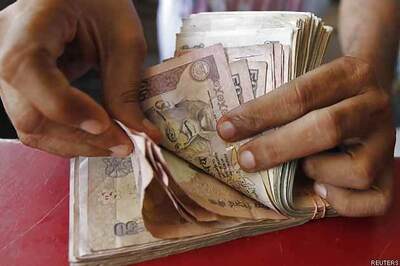


Comments
0 comment